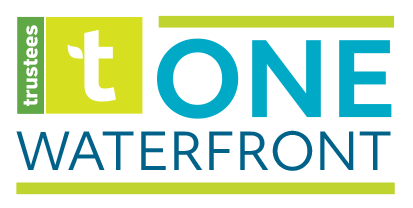Green solutions a necessity for healthy and sustainable cities: Perspectives from the TD Bank Group / GlobeScan SDG Leadership Forum
In 2015, the United Nations (UN) Member States adopted the 2030 Agenda for Sustainable Development, a roadmap for a more equitable, resilient world, with 17 Sustainable Development Goals (SDGs).
Today, the SDGs are a global call to action in the fight against poverty, hunger, and inequality. They are also drivers for moving towards a shared global vision of good health, quality education, clean water and energy, sustainable cities, peace, and justice for all.
Goal 11 in the roadmap—“Sustainable Cities and Communities”—seeks to make cities and communities inclusive, safe, resilient, and sustainable. A recent leadership forum, hosted by GlobeScan and TD Bank Group for this SDG, invited a diverse range of participants from civil society, government, and the private sector to explore this topic, share expertise, and weigh in on the challenges faced by urban centers in North America.
Participants from 19 countries took part in two hours of discussion, guided by 12 expert panelists, including Barbara Erickson, President & CEO of The Trustees. A new report now details the findings of this discussion and features real-world examples and case studies from the participants, including The Trustees’ One Waterfront vision—an initiative working to understand the role that parks play in providing green infrastructure solutions and building healthier communities around the Boston waterfront.
“Green infrastructure can serve as defensive or naturally resilient solutions for neighborhoods—keeping them safe from short- or long-term damage from the effects of changing climates such as storm surges,” said Erickson. “With the extremes expected in rising temperatures and increased storms and flooding, green solutions like designed green infrastructure and planted surfaces will be a necessity for healthy and sustainable living in our cities.”
As the forum report points out, 82% of North America’s population currently resides in urban areas and that number is expected to grow, making limited publicly accessible space that much more important to quality of life. But world-class cities around North America are taking note. Examples of engaging, innovative open space such as Brooklyn Bridge Park in New York City and Sugar Beach in Toronto welcome residents and visitors alike while also bolstering the resilience of waterfront areas.
With significant climate change impacts such as flooding becoming increasingly common by the year, more and more vulnerable cities are looking at green solutions for addressing the challenges.
Resilience isn’t limited to infrastructure, however. City planners and residents are increasingly recognizing the personal and community resilience benefits provided by access to parks and open land—something forum participants also noted, calling urban green spaces and parks “crucial indicators” of a sustainable, healthy, and livable city.
“Urban green spaces present savings in health care, social support programs, and environmental adaptation and mitigation efforts,” added Erickson. “They build up a neighborhood’s livability score, add value to the housing stock, and support the local economy. Land conservation organizations and municipalities need capacity to measure these impacts and derive the financial benefits.”
According to a survey conducted by The Trustees in Boston last summer, City residents are already thinking along these lines. In fact, 60% of those surveyed said they consider living close to open spaces to be extremely or very important when deciding where to raise a family. Two-thirds of residents (63%) said that parks and open spaces were extremely or very helpful in building communities and well over two-thirds (70%) supported policies that create more parks, gardens, and open space—even at the sake of economic development.
Ultimately, the forum identified actionable insights that should be prioritized in order for cities to overcome existing barriers, and defined the role of non-governmental organizations in driving progress on green infrastructure.
“The examples shared with us during this forum were inspiring and demonstrate why effective collaboration is needed at all levels,” said Chris Coulter, GlobeScan CEO. “Through listening, engaging with, and responding to a variety of stakeholders, progress can be made to bring us one step closer to a 2030 where we can all live more sustainably while maintaining social and economic dignity.”
To download the full forum report, click here
To learn more about The Trustees’ One Waterfront Initiative click here


